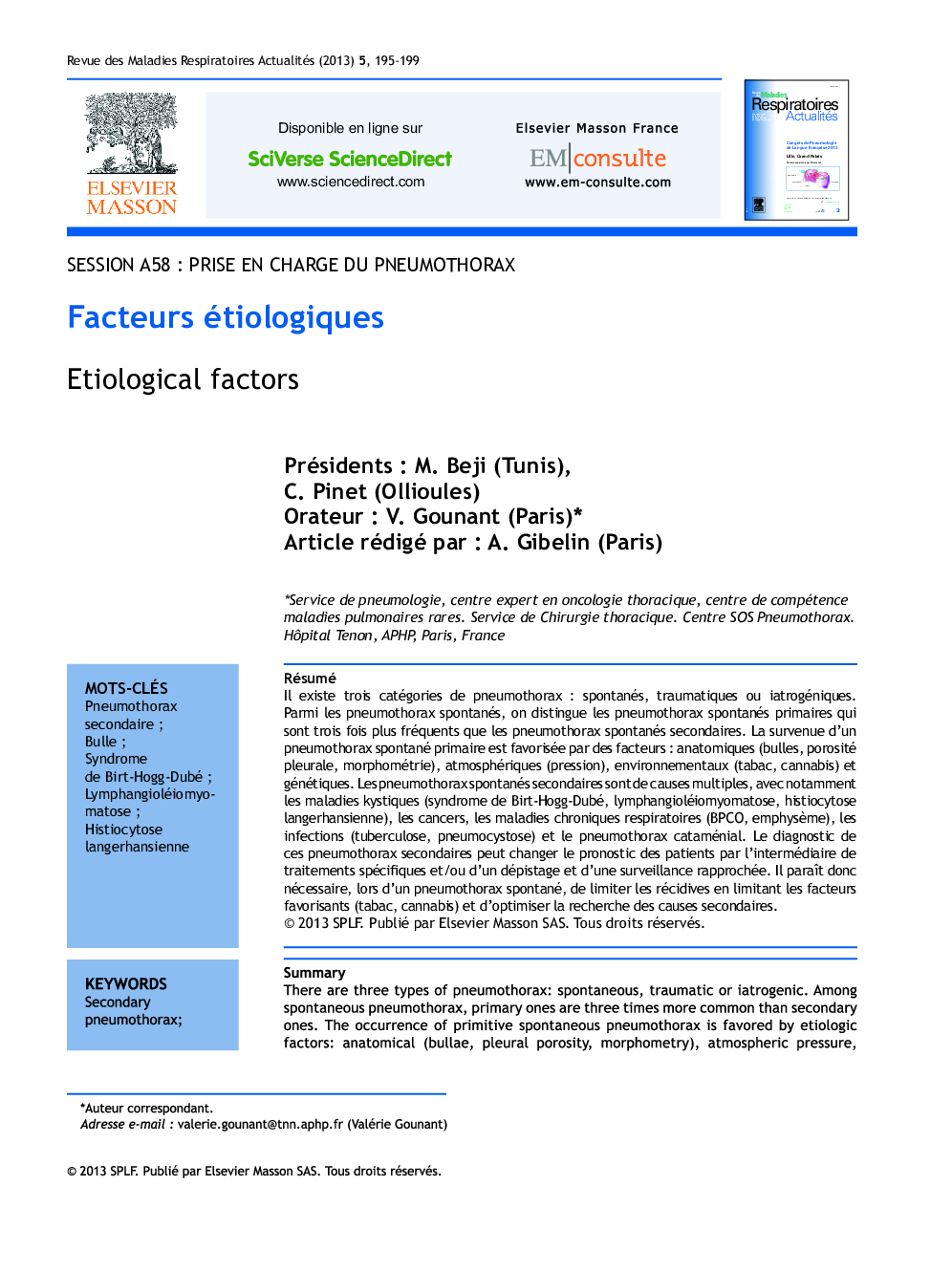| Article ID | Journal | Published Year | Pages | File Type |
|---|---|---|---|---|
| 4215775 | Revue des Maladies Respiratoires Actualités | 2013 | 5 Pages |
Abstract
There are three types of pneumothorax: spontaneous, traumatic or iatrogenic. Among spontaneous pneumothorax, primary ones are three times more common than secondary ones. The occurrence of primitive spontaneous pneumothorax is favored by etiologic factors: anatomical (bullae, pleural porosity, morphometry), atmospheric pressure, environmental (tobacco, cannabis) and genetic. Secondary spontaneous pneumothoraxes come from multiple causes, such as cystic pulmonary diseases (syndrome of Birt-Hogg-Dubé, lymphangioleiomyomatosis, Langerhans cell histiocytosis), cancers, chronic respiratory diseases (COPD, emphysema), infections (tuberculosis, pneumocystis) and catamenial pneumothorax. The diagnosis of these secondary pneumothoraxes may change the prognosis of patients through specific treatments and/or screening and regular monitoring. Therefore, it seems necessary during a spontaneous pneumothorax, to reduce recurrence by reducing risk factors (tobacco, cannabis) and to optimize the search of secondary causes.
Keywords
Related Topics
Health Sciences
Medicine and Dentistry
Pulmonary and Respiratory Medicine
Authors
M. Beji, C. Pinet, V. Gounant, A. Gibelin,
